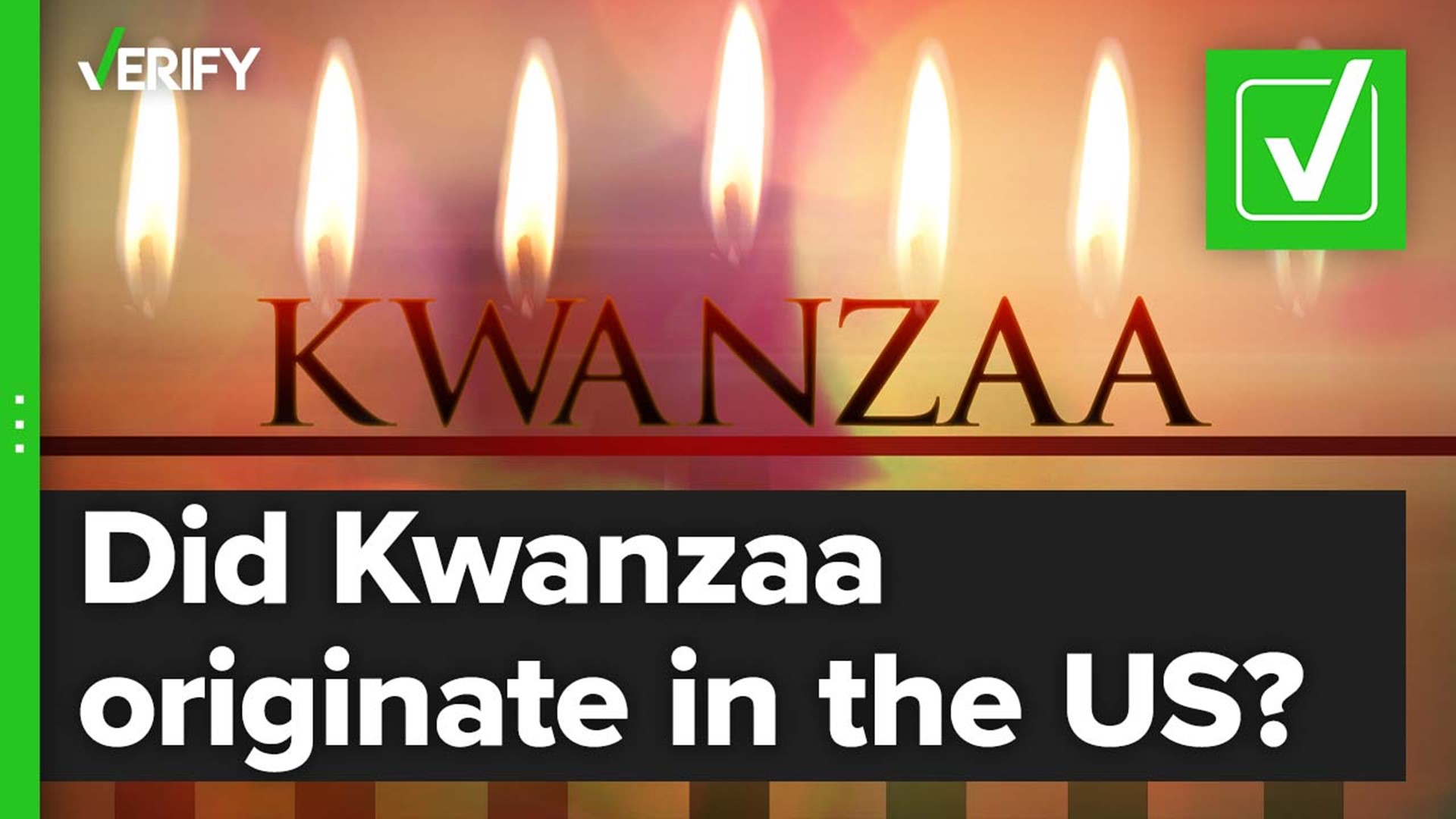Kwanzaa is a week-long holiday that is observed annually from Dec. 26 to Jan. 1. Throughout the seven-day celebration, families come together to eat, dance and rededicate themselves to the holiday’s seven core principles, known as the Nguzo Saba, which reinforce the importance of family, community and culture. They include: Umoja (Unity), Kujichagulia (Self-Determination), Ujima (Collective Work and Responsibility), Ujamaa (Cooperative Economics), Nia (Purpose), Kuumba (Creativity) and Imani (Faith).
Dr. Maulana Karenga, the creator of Kwanzaa, describes the holiday as “a unique time to remember and honor our ancestors; to reflect on what it means to be African and human.” While Kwanzaa is tied to several African traditions, many people have questions about the origins of the holiday.
THE QUESTION
Did Kwanzaa originate in the United States?
THE SOURCES
- The Africa Center, University of Pennsylvania
- Civil Rights Digital Library
- Dr. Maulana Karenga, creator of Kwanzaa
- Dr. Richard Cooper, director of the BSW program and co-coordinator of the African American Studies program at Widener University
THE ANSWER
Yes, Kwanzaa originated in the United States.
WHAT WE FOUND
An activist in the Black Power Movement of the 1960s, Karenga, who was born in Parsonsburg, Maryland, co-founded The Organization US in 1965 after the Watts Riots in Los Angeles. The cultural and social change organization was based on the principles that would later become the pillars of Kwanzaa. A year later in 1966, Karenga created and introduced Kwanzaa to the U.S. as “an act of cultural recovery and reconstruction.”
According to Dr. Richard Cooper, co-coordinator of the African American Studies program at Widener University, Karenga also created the holiday as a part of the broader Pan-African Movement of the 1960s “to reestablish, reconnect and recreate aspects of African culture.”
“He took a broad look at many cultures on the continent of Africa and then in what we say the diaspora, and he attempted to construct a very meaningful, and a very significant celebration to retain cultural beliefs and values, in some cases, to restore them, in other cases, to unify them,” said Cooper.
While Kwanzaa is celebrated right after Christmas, Cooper says the holiday is not an African or African-American version of Christmas.
“I wouldn't call it an African Christmas,” Cooper said. “It's grounded in bringing the family together, bringing the community together. It's a move away from capitalism.”
More from VERIFY: No, Coca-Cola did not invent the modern image of Santa Claus

